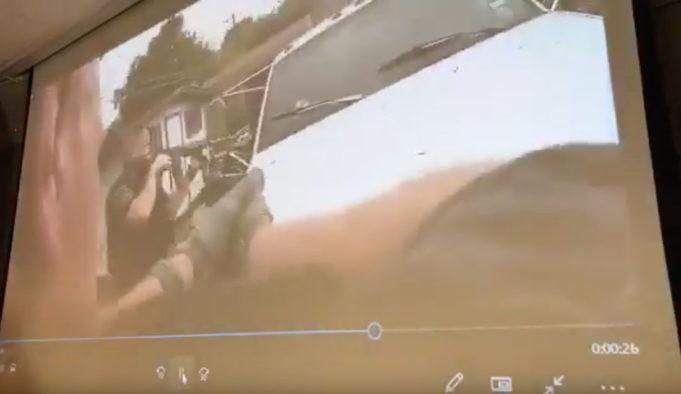Some people might look at the recent shooting death of 20-year-old Jaquavion Slaton by Fort Worth police and say, “Well, the kid had it coming.” Police sought Slaton on a felony warrant for an aggravated assault that occurred in Tyler in April. Police accounts say Slaton ran while holding a gun and hid in a stranger’s truck before police surrounded the vehicle, broke out a window, and shot him after he made an overt movement with the firearm.
Some residents might even say, “Good riddance.”
People from predominantly African-American neighborhoods such as Stop Six, where the shooting occurred, might see things completely differently. Who’s right? Who’s wrong? Are right and wrong clearly definable?
Slaton’s death followed three other police shootings in Fort Worth that had occurred during the first week of June. Community activist and pastor Kyev Tatum described Slaton as the victim of “bad policing.” He and other protesters flocked to City Hall to demand answers. The Fort Worth Star-Telegram editorial board echoed the demands, saying years of tension between police and black residents required a speedy release of bodycam videos and information.
Mayor Betsy Price issued a statement acknowledging the public’s “fear and anger” but blasted as “appalling and irresponsible” those who were “calling our police officers murderers.”
Videos were released and, to some extent, confirmed police accounts of the event. Case closed? Hardly.
Many in the black community don’t accept the police’s characterization of the events and say the officers who shot Slaton should be punished. The way police officers rushed the pickup where Slaton was hiding enflamed the situation and instigated the confrontation, the black activists say.
“What we believe happened on that Sunday was appalling and irresponsible for those officers to get that close around that pickup truck, yell out commands, beat on the hood, break the window, and commence with the firing squad that executed that young man,” Tatum said.
Fort Worth police’s use-of-force training guidelines call for de-escalating and stabilizing situations to “reduce the immediacy of the threat so that more time, options, and resources are available to resolve the situation.”
The goal of de-escalation is to “gain the voluntary compliance of subjects, when feasible, to reduce or eliminate the necessity to use physical force.”
Tatum said police officers pursuing Slaton ignored those guidelines.

“We think it’s irresponsible and appalling for them to not follow the general orders about the use of deadly force,” he said. “We firmly believe they were running to a gunfight. That’s exactly what they got. [Slaton] was outgunned, outmanned, and outmanueverd, and if they had done what the general order said – put time and distance between them – we believe that young man would still be alive.”
In 2016, the arrest of black mother Jacqueline Craig and her two black daughters by a white Fort Worth police officer created a public outcry. The Fort Worth City Council appointed a task force to make recommendations. One of the major proposals was to create an independent citizen review board to examine allegations of police abuse.
Task force chairperson Bob Ray Sanders said the Slaton shooting could wind up being one of the first cases heard by a citizen review board should the city council choose to create one. Council members are currently considering the creation of a nine-member review board to begin work later this year.
“The fact that we had four shootings with three people being wounded or killed in such a short time raises questions about training, policy, a lot of things, just the attitude of police officers who have a license to shoot,” Sanders said. “The community is still very much upset regardless of what [police] say.”
People in black communities across the country – including Fort Worth – believe police are quicker on the trigger with black suspects, he said.
“This is not over,” Sanders said. “I’ve got a ton of questions that have not been sufficiently answered for me.”











